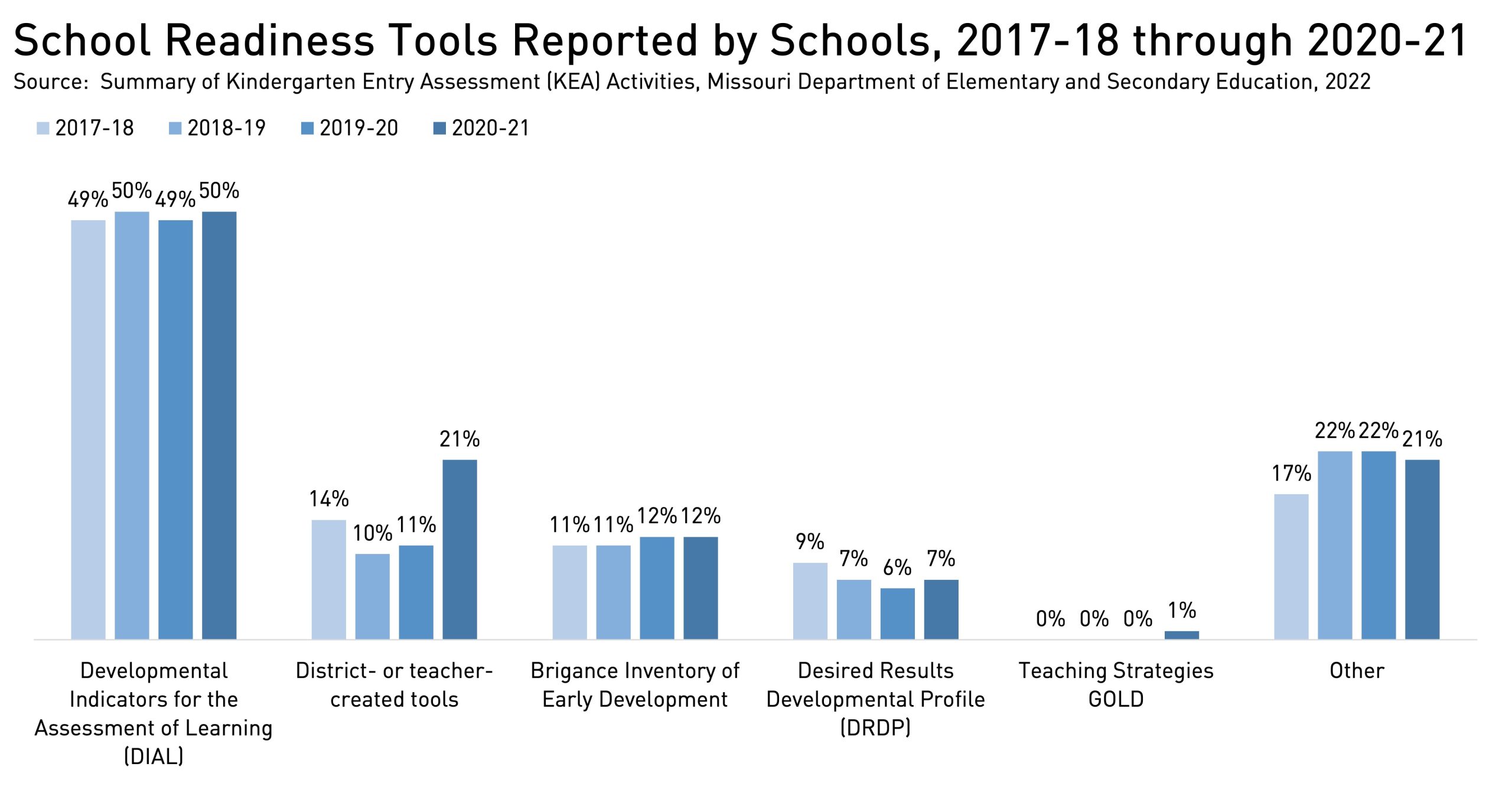Kindergarten Readiness
Milestones for Student Success
What it is
Kindergarten readiness—also known as school readiness—refers to the quality of a child’s learning and development experiences before age 5.
The National Education Goals Panel identified five general categories associated with readiness for K-12 schooling:
- Health & physical development
- Emotional well-being & social competence
- Approaches to learning
- Communicative skills
- Cognition & general knowledge

Photo by Allison Shelley/The Verbatim Agency for EDUimages
The goal of a quality pre-school or early childhood education program should be to ensure that children make progress in each of these areas by the time they enroll in kindergarten. However, children enter kindergarten with a wide range of development in each of these areas, much of which is affected by access to quality childcare, health care, early education, nutrition, and other factors.
Why it matters
Kindergarten readiness can predict student academic and socio-emotional outcomes later in school (Bernstein et al, 2019; Hein et al, 2013).
A University of Missouri study found that students continue to lag 18 months behind after entering kindergarten less prepared than their peers.
These assessments are critical in ensuring each individual child has the skills and competencies needed to thrive in school.
Readiness assessments can be useful diagnostic tools that give parents and teachers critical information on how to support individual students.
Given their predictive power, they can also help identify individual students who risk falling behind over time. Finally, they can provide policymakers with the evidence needed about system-wide strengths and deficiencies to help direct early childhood funding and policy more effectively.

In an Ohio statewide study, nearly three in four students who tested positively for a potential problem on a kindergarten readiness assessment scored below the passing promotion score on the third grade ELA assessment.
What the data tell us
Unfortunately, no universal kindergarten readiness assessment exists in St. Louis or across the state of Missouri.
Nationally, approximately half of all states and the District of Columbia require kindergarten readiness assessments. One example is Maryland’s Ready 4 Kindergarten comprehensive assessment system. Missouri is not among them.
Instead, Missouri offers an optional assessment called the Desired Results Developmental Profile (DRDP). Originally developed by the California Department of Education, DRDP is aligned to Missouri’s early learning standards and is intended to inform parents, teachers, and administrators about students’ early learning and development.
A recent analysis by the Missouri Department of Elementary and Secondary Education indicates only 6% of schools use the readiness assessment DRDP, and about half of schools use another developmental screening tool not designed to measure kindergarten readiness.
What we’re learning
Kindergarten assessments provide critical information:
For parents and teachers by measuring whether children have the skills and competencies needed to successfully transition into kindergarten.
For teachers, these assessments also help identify individual students who risk falling behind.
For policymakers, they provide the evidence needed about system-wide strengths and deficiencies to help direct early childhood funding and policy.
For example, Maryland measures kindergarten readiness in part to determine whether local and statewide efforts are adequately meeting children’s needs. One study found a relationship between kindergarten readiness and third-grade reading and math skills. Nine out of 10 children whose scores indicated they needed the most support for kindergarten were not proficient in reading or math by third grade. This finding illustrates how early data can inform statewide work to identify challenges and define solutions.
Approximately half of all states and Washington, D.C. require kindergarten readiness assessments.
Prior to 2021, the Missouri Department of Elementary and Secondary Education recommended a school readiness tool called Desired Results Developmental Profile (DRDP) to assess the skills and behaviors of preschoolers heading into kindergarten. Fewer than one in 10 schools used it.
The state is piloting a Kindergarten Observation Form registration administered to children within the first few weeks of starting preschool or Kindergarten.
Without consistent data collection regarding school readiness, it will be difficult for Missouri to have insights needed to effectively direct resources and support to children who need them the most.
“
At the program level, by utilizing a kindergarten readiness assessment (KRA), ECE programs can identify the readiness gaps of children to ensure kindergarten programs are ready to better meet the needs of incoming students. At the regional level, the establishment of a universal, developmentally appropriate KRA will provide data to inform ECE system design and priorities. It is critical that a KRA for the St. Louis region is rooted in developmentally appropriate practice. – The Playbook: A St. Louis community-led response to the First Step to Equity report
How to improve
Missouri can increase overall funding for kindergarten readiness and join other states in requiring programs to collect and disseminate kindergarten readiness data.
This would ensure teachers and parents have useful diagnostic data to support each child entering kindergarten and provide policymakers with data to guide policy decisions.
The 2014 passage of HB 1689 ensured that every school district in Missouri is eligible to receive funding as part of the state school funding formula for a number of pre-K students equal to four percent of their total enrollment of students eligible for free- and reduced-price lunch.
Initiatives like the STL Pre-K Cooperative are working to expand access to this funding, increase the availability of free pre-K seats, and increase the number of pre-K programs preparing and assessing students for kindergarten readiness.
Missouri has taken steps to organize our state to improve pre-K and kindergarten readiness, by establishing the Office of Early Childhood.


